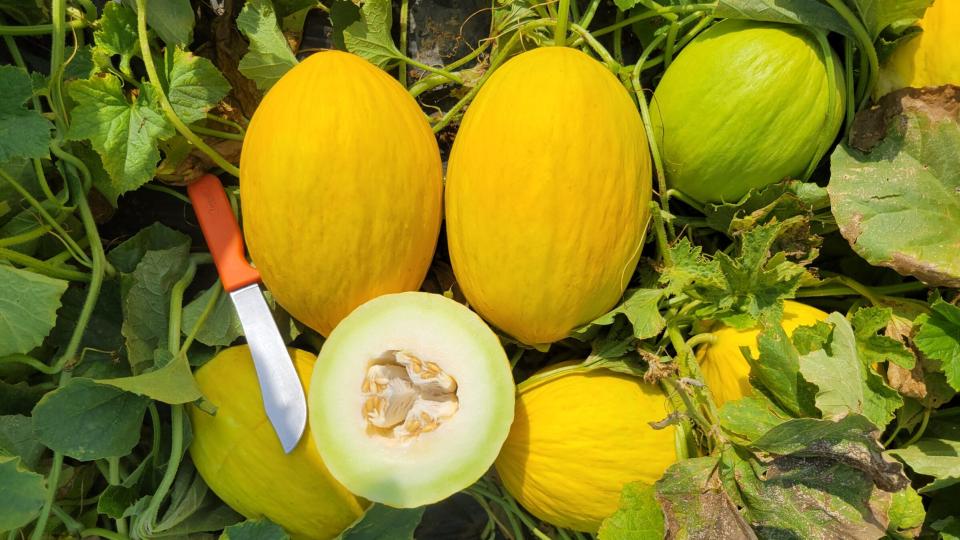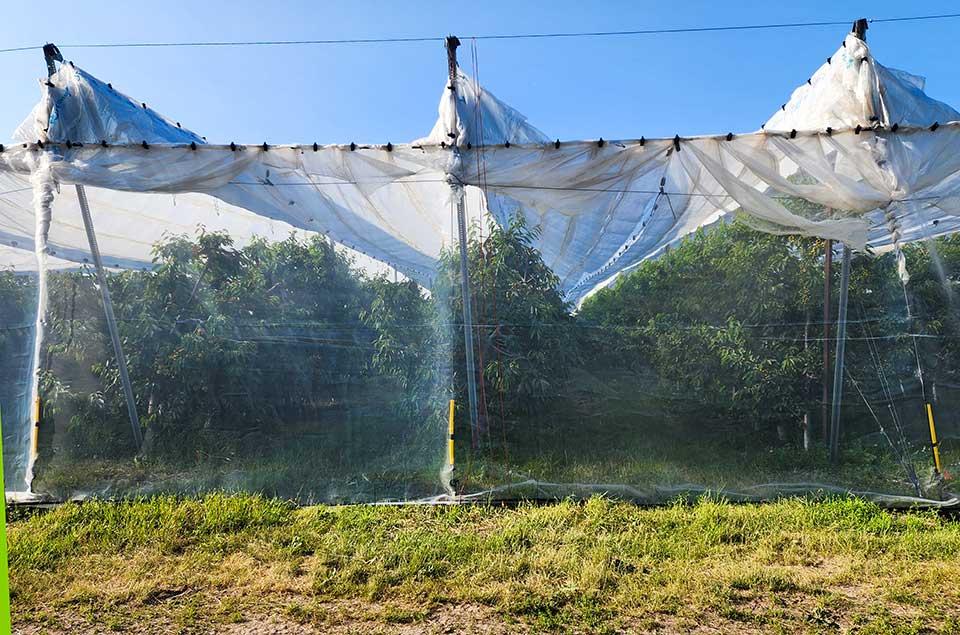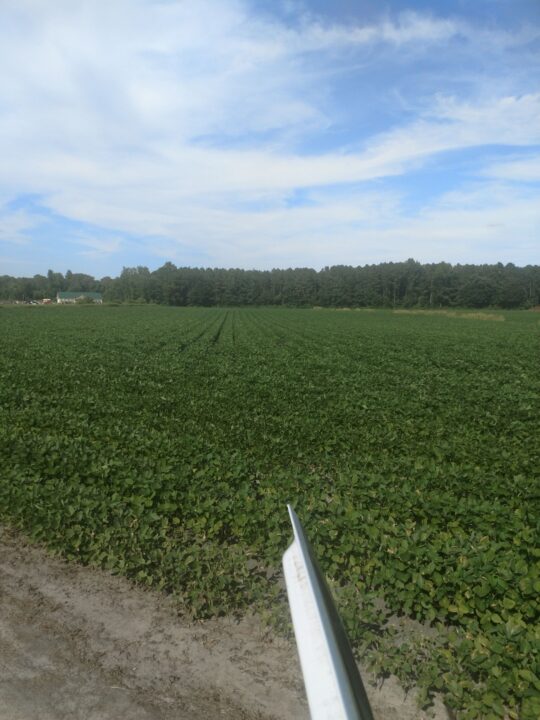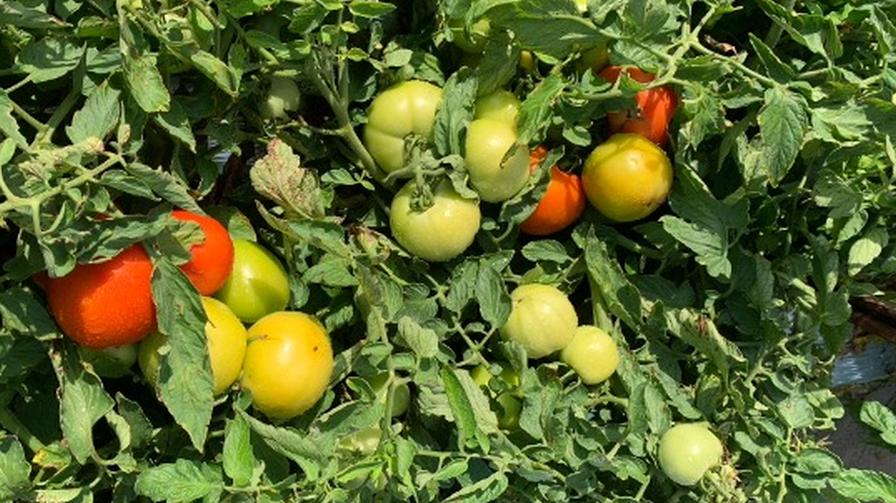Plan in Place to Investigate Mexican Fruit and Vegetable Imports into U.S.
Earlier this year, the Trump Administration asked specialty crop growers from Georgia and Florida to sound-off about the impact of imports — especially from Mexico — on their seasonal markets. The growers and other stakeholders spoke loud and clear. More than 60 witnesses participated in virtual hearings hosted by the U.S. Trade Representative (USTR), UDSA, and the Department of Commerce. In addition, more than 300 written testimonies were submitted to the USTR.
On Sept. 1, it appeared the Administration heard the call and announced a plan to address the threat posed by foreign imports to American producers of seasonal and perishable fruits and vegetables.
“President Trump recognizes the challenges faced by American farmers and is committed to promoting and securing fair trade and a level playing field for all American producers,” U.S. Trade Representative Robert Lighthizer said in a statement. “Secretary of Agriculture Perdue, Secretary of Commerce Ross, and I are fully engaged in this effort. We would like to thank all of the elected officials, agricultural leaders, and dozens of farmers who participated in these hearings and helped make this plan a priority.”
Based on the information collected during the virtual hearings and written testimonies, the three agencies say they will proceed with the following actions during the remainder of the year.
- The USTR will request the International Trade Commission to initiate a Section 201 global safeguard investigation into the extent to which increased imports of blueberries have caused serious injury to domestic blueberry growers.
- USTR will pursue senior-level government-to-government discussions with Mexico over the next 90 days to address U.S. industry concerns regarding U.S. imports of Mexican strawberries, bell peppers, and other seasonal and perishable products.
- USTR will work with domestic producers to commence an investigation by the International Trade Commission to monitor and investigate imports of strawberries and bell peppers, which could enable an expedited Section 201 global safeguard investigation later this year.
- The Department of Commerce will
(a) establish an outreach program to connect with southeastern and other growers of seasonal and perishable fruits and vegetables to enhance understanding of applicable trade remedy laws and processes; and
(b) establish a formal channel for stakeholders to provide information related to unfair subsidies for foreign producers and exporters of seasonal and perishable fruits and vegetables, including those in Mexico – building on ongoing efforts to partner with U.S. industry to identify such subsidies.
- The Department of Agriculture will
(a) increase targeted outreach to producers of seasonal and perishable fruits and vegetables to maximize the use of existing USDA programs; and
(b) develop a market promotion strategy for domestically produced produce; and
(c) initiate conversations with relevant federal partners to better understand the extent to which imports of seasonal and perishable products are utilized to enable criminal activity.
- USTR, the Department of Commerce, and the Department of Agriculture will establish an interagency working group to monitor seasonal and perishable fruit and vegetable products, coordinate as appropriate regarding future investigations and trade actions, and provide technical assistance to Members of Congress in developing legislation on this issue.
“We are hopeful that [USTR’s] announcement signals a commitment from the administration to stand with Florida farmers and hold Mexico accountable for their unfair trade practices,” said Florida Agriculture Commissioner Nikki Fried. “It’s clear there is still a lot of work needed to provide the relief our farmers desperately need — the Florida Department of Agriculture will continue pushing for solutions, and we look forward to working with the Administration to enact timely and effective remedies.”
Florida Blueberry Growers Testify
An all-star lineup of Florida growers participated in the virtual hearing hosted by the USTR in August. Among them were blueberry growers — a sector that’s taken a hit hard from Mexican blueberry imports into the U.S. Here’s excerpts from two Florida growers’ testimony.
“Our market prices have continued to fall year after year due the direct impact of increased volume pouring into our market by the imported blueberries. When my family and I started growing blueberries 10 years ago, Mexico was importing less than 1 million pounds annually. Mexico is now shipping over 100 million pounds annually in which the timing falls directly into our domestic blueberry season. Based on our research and market knowledge, they will be producing and shipping around 200 million pounds to the U.S. market within the next three to five years. Their government has subsidized the input of infrastructure on their farms including the installation of irrigation, wells, and protective planting such as hoop houses, just to name a few. Their production costs are far less than ours, including drastically reduced labor costs, which is one-twelfth of our share in Florida. Florida’s fresh blueberry labor costs account for 70% of our total cost to grow, harvest, and pack our product.”
Michael Hill
Southern Hill Farms
“Recent massive and heavily subsidized plantings in Mexico continue to threaten the livelihood of our Florida producers. From 2009 to 2019, Mexico’s U.S. market share of blueberries increased by 2,111%. By contrast, Florida’s market has decreased over the last several years. The culprit is one. It is Mexico’s millions of dollars in government subsidies that create artificially low prices for its produce. To exacerbate the situation, from January to April of this year, while Florida blueberry farms were taking sales loss from the U.S. food service shut down because of the coronavirus pandemic, Mexico shipped an additional 1.5 million flats of blueberries into the U.S., increasing their U.S. market share by 64% in that period.”
Brittany Lee
Florida Blue Farms










